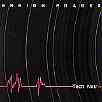Greigg Fraser: Well, my mother was a musician who played violin, guitar and piano. Although she died when I was still quite young, she'd planted the seed in me to pick up some sort of instrument--and the guitar was the first to catch my ear! My older brother was already playing in bands as a singer and because of him I became exposed to lots of music. The two albums that really got the fire started for me were "Led Zeppelin I" and Jeff Beck's "Truth".
Greigg Fraser: My main guitar is a Paul Reed Smith Custom 24, and I plug it into a Johnson Millennium Stereo 150 guitar amp, with 2 single 12 extension speaker cabs which house EVM's.I also use the Johnson J12 pedalboard. My other guitar is a Steinberger GL4T-A, which is the model made completely out of composite material, with the small rectangular body.
Greigg Fraser: I want to continue to grow and improve myself, both as a player and a writer. I know that's a pretty stantard answer, but it's the truth. Take Eric Clapton, or B.B.King for example. Both guitar legends in their own right, but neither one of them have learned a new lick in 30 years! I suppose "if it aint broke don't fix it" can apply here, but on the other hand you have artists like Jeff Beck, who's always re-inventing himself, or players like Eric Johnson, or Steve Vai who are costantly pushing themselves to new heights--that's for me!
Greigg Fraser: Not long ago I did the guitars for the new theme song for the United Way here in Canada, "Count On Me". I've also done the odd session locally such as our local TV station's news theme, and some guitar work on some other artist's projects. There's talk of doing another season of
the guitar instructional show "Guitar Talk" that I produce for cable television, although nothing's confirmed at this time. Other than that, I'm writting some new material to be recorded this summer as a possible
follow up to "Tech Noir."
Greigg Fraser: It usually starts with a melody...either something that pops into my head, or something I stumble across while practicing. Then I work to expand that melody, and put chords under it, etc., etc., and hopefully I end up with something I can use. Other times, I just sit down with the intension of writing something. I don't believe you have to wait until you're inspired. If something comes out of you due to inspiration that's great, but most of the time I've found you just have to MAKE it happen!
Greigg Fraser: I am very fortunate to have a good friend with his own studio! It's not your average "home" studio by any means--his outboard gear alone is to die for! As everyone knows time in a commercial studio is very expensive, and if you're an independant recording artist you likely don't have a lot of doh-ra me! Recording at a home studio is often the only way, and in my case as I said I'm very lucky to be able to record at my friend's wonderful studio! What we did is record and mix there, being extremely "anal" about every single thing, and then we mastered at a commercial studio, that had a very professional mastering suite. We were very pleased with the results!

Greigg Fraser: First off, making an instrumental guitar album has been a dream of mine for many years. Ever since I heard Jeff Beck's "Blow by Blow" album it's simply been something I wanted to do. I was just finishing up with a vocal/rock band out of Toronto called "Media Mania" when I thought I'd release one of my instrumental guitar songs on a compilation CD that was being released by the record label we were involved with at the time. The song did very well with quite a bit of airplay, mostly in Europe (in Belgium on Alpen radio it reached #3, and stayed there for 3 weeks! Much to my surprise!) That prompted me to record enough songs for a full album.
But even with my success in Belgium, it was impossible to get any industry support/interest generated. It was then the time of Kurt Cobain and friends, people like Tony MacAlpine and Greg Howe weren't having any luck, what hope was there for me? Releasing my own CD seemed like the only answer. So with the help of my good friend with the studio, and some financial aid from Jim Dunlop Productions, numerous other friends and a generous amount of my own money, my first release "Making Waves" was born!
Greigg Fraser: Well as far as advantages go, you're your own boss. You have TOTAL control of every aspect of your career! The main disadvantage is you're on your own! You have to be your own publicist, manager, book gigs, etc., etc., and the worst is that if you represent yourself...the industry folks imediately assume you're no good!
Greigg Fraser: Yes. First create a label with its own logo, letterhead and so on. Do ALL of your correspondence to/from the industry types using the label name--not your own, at least not directly. For some reason when they see a company/label name they take things much more seriously. Secondly, get a web site together! And get someone who really knows what they're doing to lay it out and design it for you. The same goes for the cover of your CD. Appearances are what sell your music, you have to remember that even though you're an independant artist, you're competing with EVERYONE to sell your product! Lastly, when you're shopping your CD to a big label, have a music lawyer send it out of his/her office. Most lawyers will charge a flat fee per package, and the chances are much better your package will get some attention if they see a lawyer's letterhead!